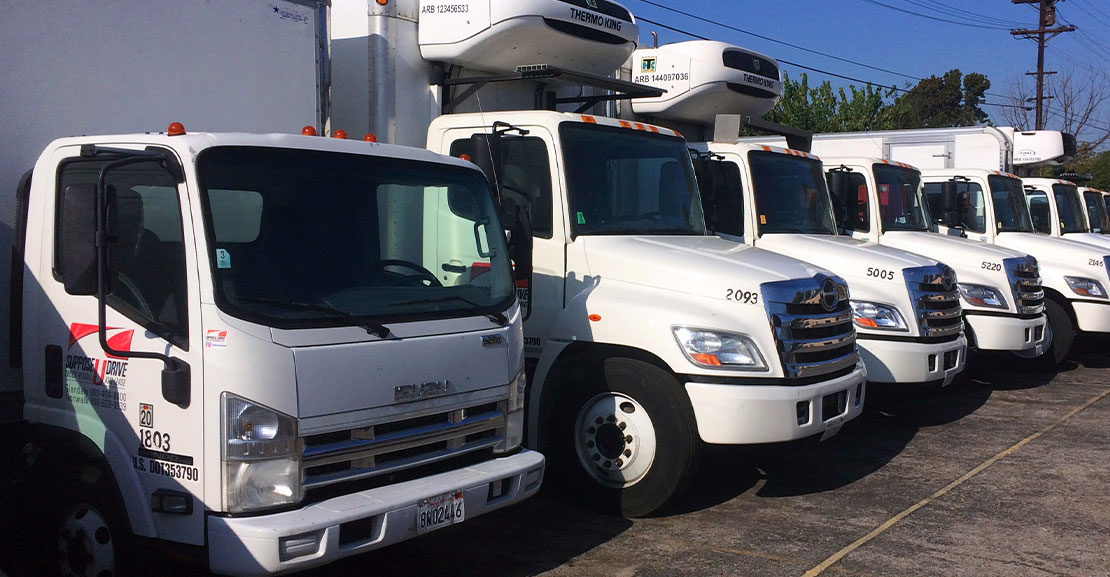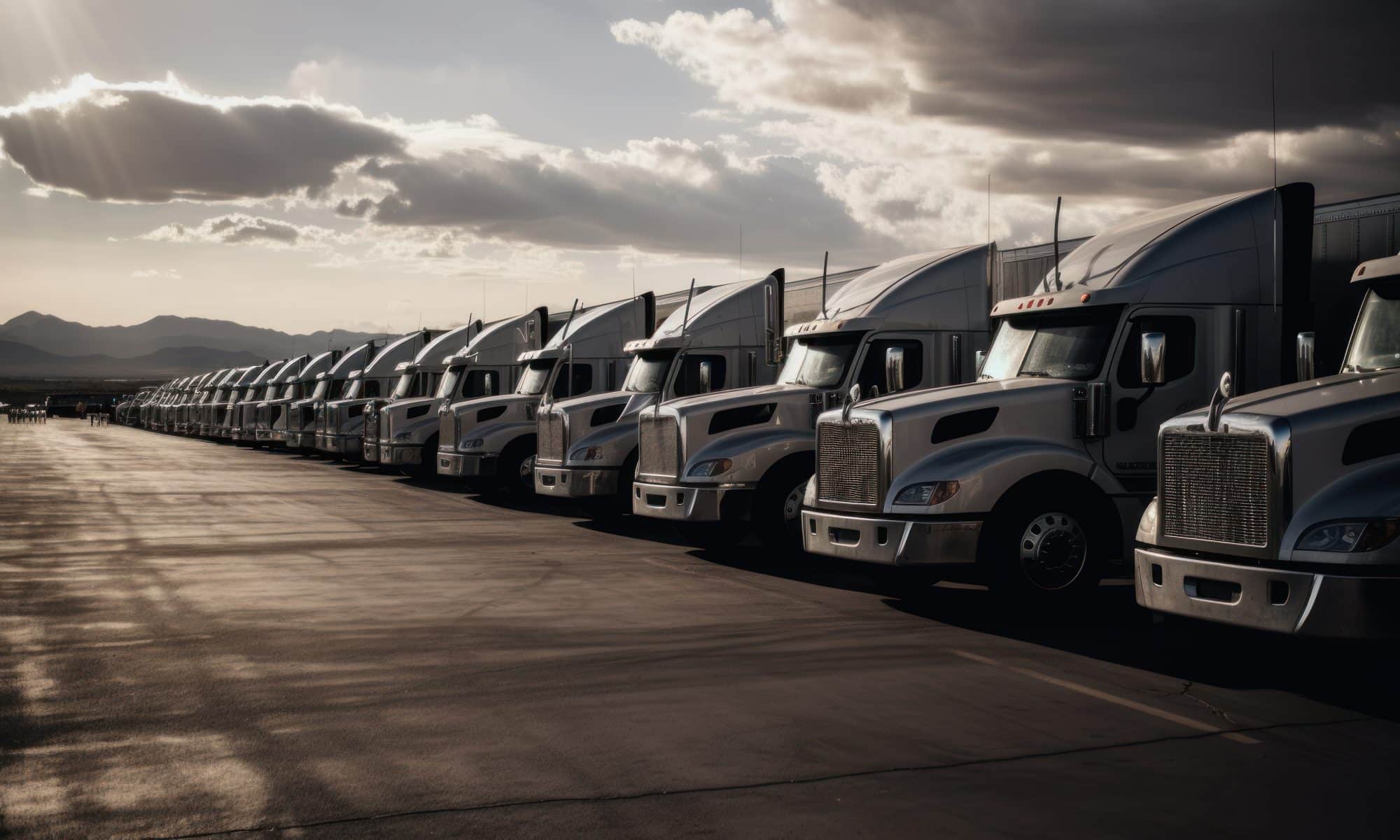
Commercial trucks play a crucial role in the transportation industry, with a diverse range of vehicles including vans, box trucks, and more. These trucks are designed to meet specific transportation needs, providing efficient and reliable solutions for businesses.
From local deliveries to long-haul transportation, commercial trucks offer versatility and functionality for various industries. Commercial trucks are essential for businesses involved in logistics, delivery services, and transportation. Understanding the different types of commercial trucks, such as vans and box trucks, is essential for businesses to make informed decisions about their transportation needs.
This comprehensive overview will explore the world of commercial trucks, providing valuable insights into their uses, features, and benefits. Whether you’re a fleet manager or a business owner, understanding the options available in the world of commercial trucks can help you optimize your transportation operations.

Credit: www.autonews.com
Navigate As You Want:
Introduction To Commercial Trucks
Commercial trucks play a crucial role in the transportation industry, serving various purposes and carrying heavy loads across different distances. Understanding the different types of commercial trucks and their importance can provide valuable insights into this fascinating world of transportation. Let’s dive in!
Different Types Of Commercial Trucks
There is a wide range of commercial trucks available, each designed to cater to specific needs. Here are some of the most common types:
| Truck Type | Usage |
|---|---|
| Vans | Great for small and medium-sized deliveries, suitable for urban areas and tight spaces. |
| Box Trucks | Equipped with a box-shaped cargo area, ideal for transporting furniture, appliances, and other large items. |
| Flatbed Trucks | Features an open cargo area with no roof or sides, perfect for carrying oversized and irregularly shaped loads. |
| Dump Trucks | Designed for hauling loose materials such as dirt, gravel, or construction waste, with a hydraulic system for easy unloading. |
Importance Of Commercial Trucks
Commercial trucks form the backbone of the transportation industry, playing a vital role in the efficient movement of goods and services. Here’s why they are so crucial:
- Reliable Delivery: Commercial trucks ensure the timely delivery of products, keeping supply chains running smoothly.
- Economic Growth: These trucks contribute to the economy by facilitating trade and enabling businesses to reach wider markets.
- Job Creation: The trucking industry provides employment opportunities for millions of drivers and support personnel.
- Flexibility: Different types of commercial trucks cater to various industries and transportation needs, allowing businesses to tailor their operations accordingly.
With their ability to transport goods efficiently and reliably, commercial trucks are an essential component of modern commerce.

Credit: supposeudrive.com
Vans For Commercial Use
As businesses expand and logistics play a pivotal role in the supply chain, the need for diverse commercial trucks has surged. Vans, known for their versatility and maneuverability, are essential assets in the commercial sector. Let’s delve into the world of vans for commercial use, exploring their advantages and common applications.
Advantages Of Vans
- Versatile and adaptable for various business needs
- Compact size allows easy navigation through urban areas
- Cost-effective in terms of fuel efficiency and maintenance
- Provides secure and weather-protected cargo space
- Option for custom fittings to meet specific business requirements
Common Uses Of Vans
- Delivery and courier services
- Mobile workshops for tradespeople
- Utility vehicles for service and maintenance companies
- Transportation for small-scale commercial operations
Box Trucks: More Than Just A Moving Vehicle
Box trucks are a versatile and essential part of the commercial trucking industry. While they are commonly associated with moving services, their utility goes far beyond simply transporting goods from one place to another. Box trucks are designed to cater to a wide range of businesses and industries, offering a secure and spacious alternative to traditional cargo vans. Let’s take a closer look at the various features and applications that make box trucks more than just a moving vehicle.
Features Of Box Trucks
Box trucks are equipped with a range of features that set them apart from other commercial vehicles. They typically have a large, enclosed cargo area, providing ample space for transporting goods. Many box trucks also come with a rear roll-up door for easy loading and unloading, as well as a ramp for effortless access. Additionally, these vehicles are often fitted with interior lighting and tie-down rails to secure the load during transit.
Box Trucks In Various Industries
Box trucks play a crucial role in a variety of industries, thanks to their adaptability and reliability. From retail and logistics to food and beverage distribution, these vehicles are used for delivering a wide range of products. Moreover, box trucks are commonly employed by construction companies for carrying tools, equipment, and materials to and from job sites. Their versatility makes them an indispensable asset for businesses seeking a dependable transportation solution.
Refrigerated Trucks: Keeping Goods Fresh
When it comes to transporting perishable goods, maintaining the freshness and quality of the products is of utmost importance. Refrigerated trucks, also known as reefer trucks, play a vital role in keeping goods fresh throughout the transportation process. These specialized vehicles employ a working mechanism that ensures optimal temperature control to preserve perishable items. Let’s take a closer look at the working mechanism and applications of refrigerated trucks.
Working Mechanism Of Refrigerated Trucks
To understand how refrigerated trucks work, it’s important to grasp the basic principles behind refrigeration. These trucks utilize a system that involves a refrigeration unit, insulation, and a temperature control mechanism. The refrigeration unit consists of a compressor, condenser, evaporator, and expansion valve.
The process begins with the compressor compressing the refrigerant, which raises its temperature and pressure. The high-pressure refrigerant moves to the condenser, where it dissipates heat and converts into a liquid state. The liquid refrigerant then enters the evaporator, where it evaporates and absorbs heat from the cargo area, thus cooling it down. Finally, the expansion valve regulates the flow of refrigerant and maintains the desired cold temperature inside the truck.
This working mechanism allows refrigerated trucks to maintain a stable internal temperature, regardless of the outside environmental conditions. As a result, goods such as fresh produce, dairy products, pharmaceuticals, and other temperature-sensitive items can be transported over long distances without compromising their quality.
Applications Of Refrigerated Trucks
Refrigerated trucks find extensive use across various industries, including but not limited to:
|
|
These trucks play a crucial role in ensuring that goods reach their destinations in optimal condition. They allow businesses to transport temperature-sensitive products safely, efficiently, and reliably.
In conclusion, refrigerated trucks are essential for maintaining the freshness and quality of perishable goods during transportation. By understanding the working mechanism and applications of these specialized vehicles, industries can make informed decisions and ensure the successful delivery of temperature-sensitive products.
Specialty Trucks: Meeting Unique Needs
Specialty trucks are designed to meet specific needs and challenges that regular vehicles may not be able to handle. These specialized vehicles are tailored to fulfill unique functions, making them essential in a variety of industries. From transporting delicate goods to accommodating oversized equipment, specialty trucks play a crucial role in various business operations.
Overview Of Specialty Trucks
Specialty trucks are a diverse category of vehicles that encompass various types and configurations. These trucks are equipped with specialized features and modifications to perform specific tasks effectively. Whether it’s for transportation, delivery, or on-site operations, these trucks are designed to optimize efficiency and productivity.
Specialty trucks are usually reinforced with sturdy frames and durable materials to withstand rigorous demands. They may also incorporate advanced technological systems to enhance safety and performance. Moreover, these trucks often come with unique dimensions, weight capacities, and maneuverability features to suit specific requirements.
Examples Of Specialty Trucks
1. Refrigerated Trucks: Refrigerated trucks, commonly known as reefer trucks, are designed to transport perishable goods at controlled temperatures. These trucks are equipped with a built-in cooling system that maintains the ideal temperature for items such as food, medications, and chemicals.
2. Tow Trucks: Tow trucks specialize in recovering and transporting vehicles that are disabled, damaged, or illegally parked. They feature sturdy booms, winches, and flatbeds to secure and transport automobiles safely. Tow trucks play a crucial role in towing services, ensuring the smooth flow of traffic and assisting stranded motorists.
3. Cargo Vans: Cargo vans are versatile vehicles used for transporting small to medium-sized goods. These vans offer ample cargo space and are often equipped with shelves, racks, and secure compartments to organize and protect cargo efficiently. They are commonly utilized by couriers, contractors, and delivery services.
4. Bucket Trucks: Also known as aerial lift trucks, bucket trucks are designed with an extendable boom and a platform to lift workers to elevated areas. These trucks are commonly used in industries such as telecommunications and utilities for tasks like repairing power lines, trimming trees, or installing and maintaining equipment overhead.
5. Mobile Cranes: Mobile cranes are heavy-duty specialty trucks equipped with a crane mechanism that can lift and move heavy objects. These trucks are often used in construction projects to lift construction materials, place large components, and perform various lifting tasks in restricted or difficult-to-reach areas.
These examples are just a glimpse into the vast range of specialty trucks available, each catering to specific industry requirements and tasks. By utilizing these specialized vehicles, businesses can effectively tackle unique challenges and optimize their operations.

Credit: rtdstruckingschool.com
Frequently Asked Questions
What Is The Difference Between Vans And Box Trucks?
Vans are smaller, more compact vehicles suitable for transporting smaller loads and navigating narrow streets. Box trucks, on the other hand, have a larger storage capacity and are more suitable for moving larger items or quantities of goods.
Are Commercial Trucks Only Used For Transporting Goods?
No, commercial trucks are used for various purposes, including transporting goods, delivery services, mobile businesses (like food trucks), construction projects, and even as mobile workshops for tradesmen.
What Is The Average Lifespan Of A Commercial Truck?
The average lifespan of a commercial truck depends on various factors, such as maintenance, usage, and brand quality. Generally, a well-maintained commercial truck can last up to 15 years or more, but some businesses opt to retire their trucks after 10 years to ensure efficiency and safety.
Are There Any Legal Requirements To Operate A Commercial Truck?
Yes, operating a commercial truck requires specific licenses and permits, such as a commercial driver’s license (CDL) and appropriate business licenses. Additionally, trucks may need to comply with certain regulations, like weight restrictions and safety standards, set by local authorities.
Conclusion
To sum it up, commercial trucks come in various shapes and sizes, each with their unique features and benefits. Vans are versatile and perfect for small businesses, while box trucks offer spaciousness and security. Beyond these options, there are specialty trucks designed for specific industries.
Regardless of your needs, the world of commercial trucks has something to offer. Whether you’re an entrepreneur or a fleet manager, understanding the different types of trucks available will help you make an informed decision and maximize your operations.



